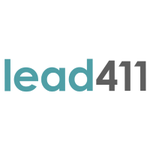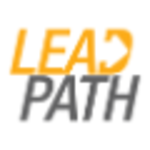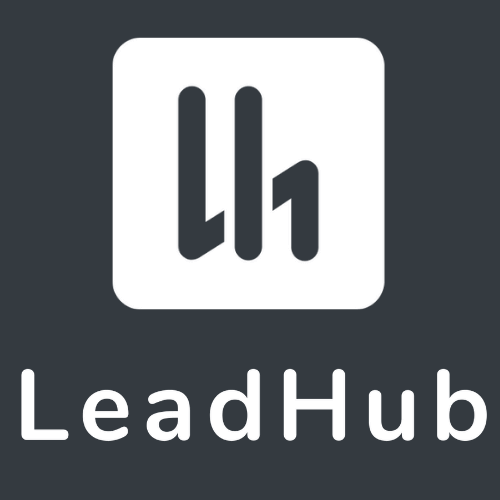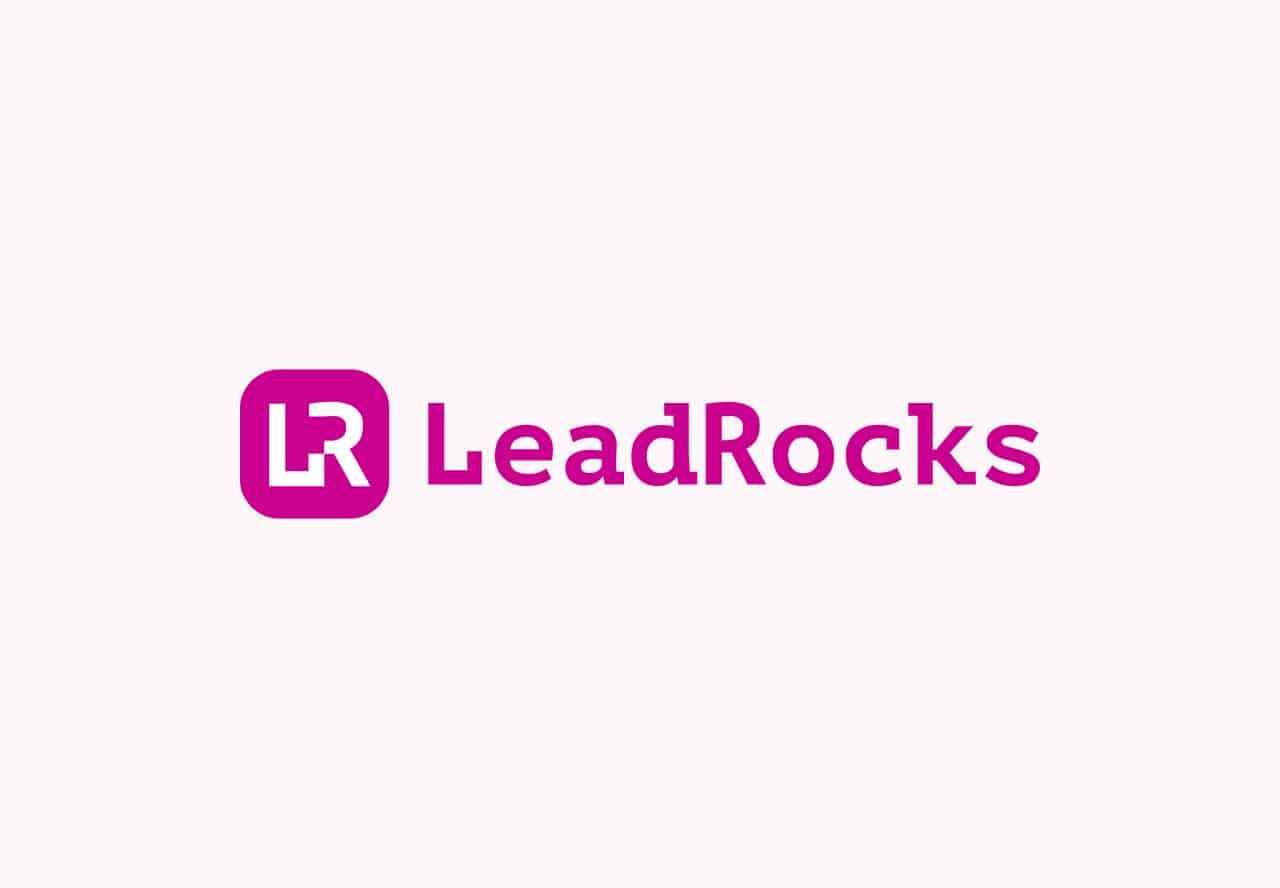Description

Lead411

LeadPath
Comprehensive Overview: Lead411 vs LeadPath
Lead411 and LeadPath are tools designed to assist businesses in prospecting and lead management, though they cater to somewhat different market needs. Here's a comprehensive overview:
a) Primary Functions and Target Markets
Lead411:
-
Primary Functions:
- Lead411 is primarily a sales intelligence platform. It provides users with access to a large database of contacts and companies, offering detailed information like emails, direct dials, and company data.
- The platform also includes features for lead generation, such as email tracking, CRM integrations, and automated alerts. Users can receive notifications about key events like funding announcements, job changes, or industry news that could indicate a new sales opportunity.
- It offers data enrichment capabilities to ensure that sales teams have the most current and complete data.
-
Target Markets:
- Lead411 primarily targets sales professionals, marketers, and recruiters who need accurate and up-to-date contact information and company insights.
- It is widely used in industries like technology, healthcare, finance, and recruiting where having detailed prospect information is critical for effective sales and marketing strategies.
LeadPath:
- Primary Functions:
- LeadPath is typically associated with lead management and sales funnel optimization. It focuses on collecting, nurturing, and converting leads through a structured process.
- Features often include data capture from various sources, lead scoring, and nurturing workflows that optimize communication with potential customers until they are ready to convert.
- Target Markets:
- LeadPath is generally aimed at marketers and sales teams who are more focused on the progression of leads through the sales funnel rather than just having a contact database.
- It caters to organizations that need to improve lead conversion rates by implementing more sophisticated workflows and lead nurturing strategies.
b) Market Share and User Base
-
Lead411:
- Lead411 has established a solid presence in the sales intelligence market, thanks to its comprehensive data offerings and a focus on real-time alerts and integrations.
- The user base includes a range of businesses from small startups to large enterprises. However, detailed market share statistics might require direct access to industry reports or proprietary information from market analysis firms.
-
LeadPath:
- LeadPath's market share could be less compared to broader platforms like Lead411, primarily because it caters to specific needs around lead management and nurturing rather than providing a large database.
- The user base may be smaller but highly focused on industries where lead management processes are a critical component of sales operations.
c) Key Differentiating Factors
-
Data vs. Process Focus:
- Lead411 differentiates itself with a focus on providing high-quality data and intelligence, helping users to identify potential leads and opportunities quickly.
- LeadPath, on the other hand, emphasizes the lead management process, helping sales teams track and nurture leads through their journey.
-
Feature Set:
- Lead411's strength lies in its extensive database and real-time alert system. This makes it ideal for businesses looking for a robust tool to enhance their prospecting efficiency.
- LeadPath excels in its workflow and automation capabilities focused on lead nurturing, making it a better fit for those seeking to enhance the lead conversion aspect of their sales strategy.
-
Integration and Customization:
- Both platforms offer integrations, but the choice may depend on which system better aligns with a company’s existing tools and processes.
- Lead411's data enhancement features may be more appealing to businesses looking for seamless CRM integration to automatically update existing contact records.
These tools, when leveraged correctly, provide valuable support to sales and marketing teams but cater to different aspects of the lead management process. The choice between them depends on the organization’s specific needs related to data accuracy or process optimization.
Contact Info

Year founded :
2001
+1 877-673-1022
Not Available
United States
http://www.linkedin.com/company/lead411

Year founded :
2015
+1 312-219-9660
Not Available
United States
http://www.linkedin.com/company/leadpath
Feature Similarity Breakdown: Lead411, LeadPath
To provide a feature similarity breakdown for Lead411 and LeadPath, let's look at these aspects:
a) Core Features in Common
Both Lead411 and LeadPath are designed as lead generation and management tools, so they share several core features:
-
Lead Database: Both have extensive databases for discovering potential leads. They provide information like company details, contact information, job titles, etc.
-
Email Integration: Capability to integrate with email systems for outreach campaigns.
-
CRM Integration: Both platforms typically offer integrations with popular CRMs like Salesforce to manage and utilize lead data effectively.
-
Data Enrichment: They provide tools to enrich lead data by adding more information that can aid in qualifying leads.
-
Analytics and Reporting: Both offer reporting features to track engagement with leads, conversion rates, and other metrics that help to optimize sales strategies.
-
Filtering and Segmentation: Features to filter and segment leads based on several criteria, making it easier to target the right prospects.
b) User Interface Comparison
While specifics can vary based on updates and specific user preferences, generally:
-
Lead411: Tends to have a straightforward, user-friendly interface focused on ease of access to its comprehensive database. It often emphasizes quick search capabilities and integration with CRM tools directly from its UI.
-
LeadPath: Known for its intuitive dashboard that allows for easy access to lead management features. It might offer a more customizable interface for setting up workflows tailored to specific business needs.
Both platforms prioritize functionality and ease of use, but users might find differences in how navigation and workflow setups are visually structured.
c) Unique Features
-
Lead411:
- Trigger-based Notifications: It has a strength in providing automatic notifications for sales triggers. This helps users be alerted when leads take specific actions that indicate readiness for engagement.
- Intent Data: Uses intent data to show when companies are looking for certain solutions, potentially increasing the effectiveness of outreach.
-
LeadPath:
- Form Building and Landing Pages: Might provide more robust features for building customized forms and landing pages directly within the platform.
- Sales Funnel Management: Emphasizes visual tools for managing sales funnels, offering more granular control over each stage in the lead's journey.
Overall, while both platforms serve the primary function of lead management and generation, the choice between them might come down to specific needs around UI preferences and unique features like trigger notifications or form-building capabilities. It’s advisable for users to take advantage of trials or demos to explore how each platform can best fit their operational needs.
Features

Not Available

Not Available
Best Fit Use Cases: Lead411, LeadPath
Lead411 and LeadPath are both tools designed to aid with lead generation and management, but they cater to slightly different needs and scenarios. Below is a description of the best fit use cases for each tool:
Lead411
a) For what types of businesses or projects is Lead411 the best choice?
Lead411 is an excellent choice for businesses that need robust lead generation and sales intelligence solutions. It is particularly beneficial for:
- Small to Medium-Sized Businesses (SMBs): Especially those with limited resources in sales and marketing but needing a hefty pipeline of qualified leads.
- B2B Companies: Businesses focusing on selling products or services to other businesses can benefit from Lead411's comprehensive database and actionable insights.
- Sales Teams: Sales teams aiming to enhance their prospecting efforts find the tool's real-time verified data useful in reaching the right contacts.
- Marketing Teams: Businesses looking to improve their email marketing effectiveness and lead nurturing strategies benefit from Lead411’s detailed contact information and insights.
d) How do these products cater to different industry verticals or company sizes?
- Industry Vertical Focus: Lead411 offers data search and filtering capabilities that allow users to target specific industry verticals, providing them with tailored datasets that address their unique sales and marketing needs.
- Scalability for Company Sizes: It is scalable for both small and larger enterprises, offering plans that can adjust according to the number of users and volume of data required. This scalability makes it suitable for growing businesses needing more resources over time.
LeadPath
b) In what scenarios would LeadPath be the preferred option?
LeadPath excels in scenarios where lead management, nurturing, and conversion tracking are priorities. It is particularly suitable for:
- Lead Qualification and Management: Businesses that need to manage their lead pipeline effectively from initial contact to sale.
- Complex Sales Processes: Organizations with longer or more complicated sales cycles requiring meticulous tracking and nurturing of leads.
- Marketing Teams with a Focus on Conversion Optimization: Teams looking to tackle lead scoring and nurturing with precision, aiming to improve conversion rates by using data-driven insights.
- Businesses Needing Customizable Solutions: Those who require more tailored lead management functions or integration with existing CRM systems.
d) How do these products cater to different industry verticals or company sizes?
- Industry Adaptability: LeadPath provides capabilities that can be adapted to various industries by allowing businesses to create custom lead nurturing workflows and sales processes.
- Custom Solutions for Various Sizes: It caters to businesses of all sizes, from startups needing a flexible tool to large enterprises requiring integration with extensive data ecosystems, ensuring adept handling of more complex lead management scenarios.
By focusing on the specific needs of businesses (such as lead generation versus lead management), these tools effectively complement each other to serve diverse client needs across industry verticals and company sizes.
Pricing

Pricing Not Available

Pricing Not Available
Metrics History
Metrics History
Comparing teamSize across companies
Conclusion & Final Verdict: Lead411 vs LeadPath
To provide a conclusion and final verdict on Lead411 and LeadPath, let's evaluate each product based on their value proposition, pros and cons, and offer some recommendations for users attempting to decide between the two.
a) Best Overall Value
Lead411 is generally perceived as offering the best overall value, primarily due to its comprehensive database, which contains millions of verified B2B contacts, its robust lead generation features, and seamless integrations with CRM platforms. It is particularly valuable for teams that prioritize data accuracy and breadth of information to enhance their sales prospecting process.
b) Pros and Cons
Lead411:
- Pros:
- Extensive and updated database with a high level of data accuracy.
- Offers real-time sales alerts and intent data which can be vital for timing outreach efforts effectively.
- Provides seamless integration with popular CRM platforms and marketing automation tools.
- User-friendly interface and customizable search filters.
- Cons:
- Pricing might be on the higher side for small businesses or startups with a limited budget.
- Some users report a learning curve when it comes to utilizing all of its advanced features effectively.
LeadPath:
-
Pros:
- Strong focus on lead nurturing and conversion with features geared towards automating sales funnels.
- Flexible and tailored solutions that can be adjusted to fit specific sales processes.
- Good customer support and onboarding process for new users to leverage the platform’s capabilities.
-
Cons:
- Not as extensive a contact database as Lead411, which may limit potential outreach efforts.
- Integration options are somewhat limited compared to other platforms, possibly requiring more manual handling.
- Can be less suitable for users primarily interested in bulk lead generation as opposed to lead management.
c) Recommendations for Users
-
Lead411 is recommended for sales teams and businesses that are looking for a comprehensive lead generation tool with a robust database and real-time data to power their sales strategies. It is particularly useful for companies that aim to target a wide array of industries and require a high volume of accurate contacts.
-
LeadPath is more suitable for organizations that prioritize lead management, nurturing, and conversion processes over the sheer volume of new contacts. If your primary need is to develop and manage a sales funnel or automate personalized outreach campaigns, LeadPath may be a preferable choice.
In conclusion, if your focus is on acquiring large volumes of accurate B2B contacts with ongoing data enrichment, Lead411 offers greater value. However, if the goal involves intensive lead nurturing and refinement of prospects through tailored sales funnels, LeadPath can be more beneficial. Users should assess their specific business needs, budget constraints, and integration requirements to make an informed decision.
Add to compare
Add similar companies



